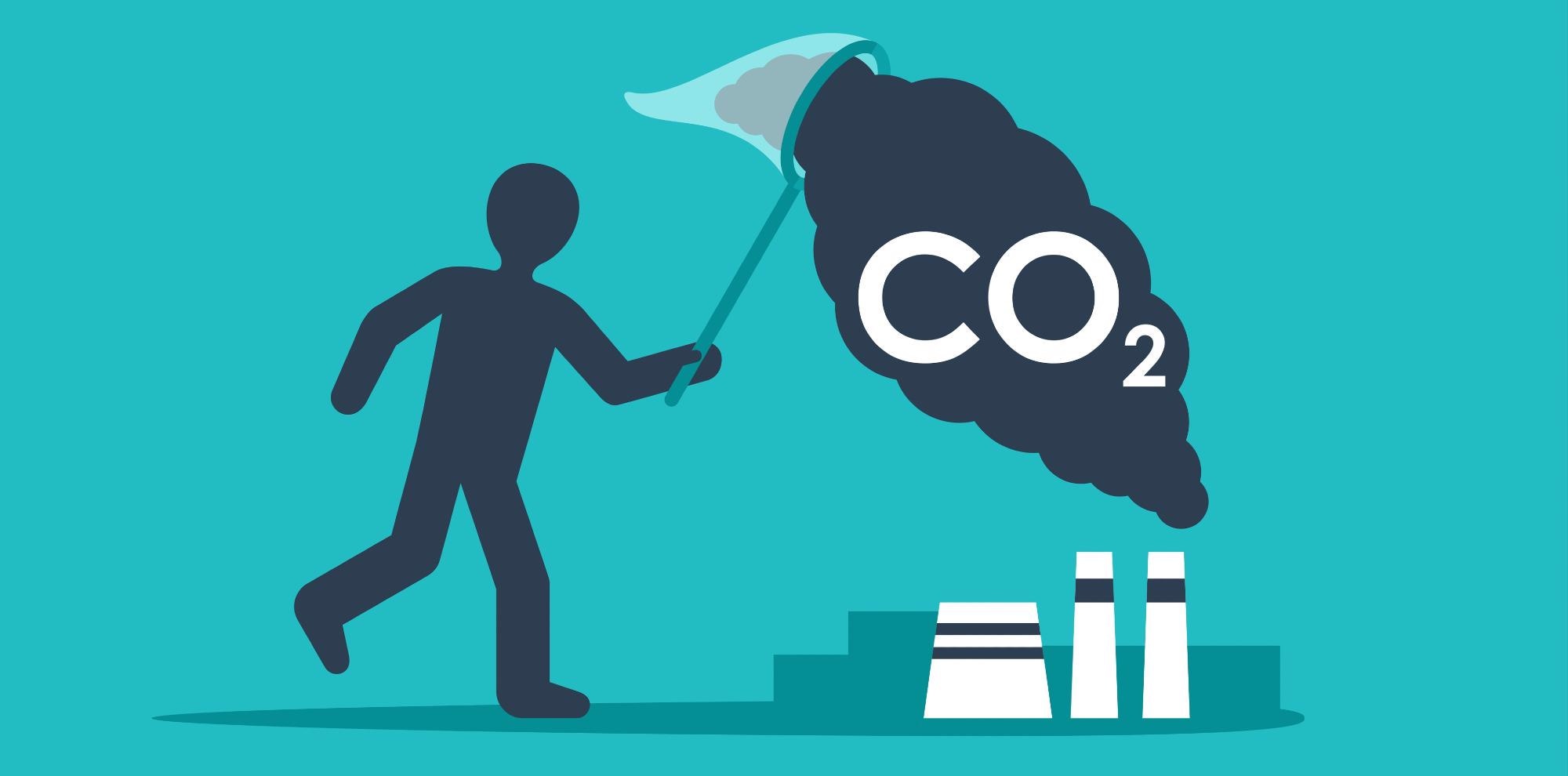Carbon capture technology is the process of capturing carbon dioxide (CO2) from activities that release emissions, preventing CO2 from entering the atmosphere and making activities that were once emissions-heavy significantly greener. Research has shown that carbon capture technology can prevent as much as 90% of the CO2 released by burning fossil fuels in processes such as electricity generation and industrial activity from being released into the atmosphere.

Image Credit: Dmitry Kovalchuk/Shutterstock.com
It is certain that carbon capture technology will play a vital role in helping the world meet strict carbon emissions targets to tackle climate change. Scientists are currently working on developing this technology and here, we will discuss how metal-organic framework (MOF) is being used to advance this field.
What are Metal-Organic Frameworks and How can they be Used as Carbon Capture Technology?
In the late 1990s, Prof. Omar Yaghi at UC Berkeley pioneered the development of MOFs. Since then, research into MOFs has grown rapidly, with more than 90,000 MOF structures being reported to date. These structures represent a unique class of compounds that have large surface areas. For example, just one thumbnail-sized pellet of an MOF has a surface area equivalent to that of two tennis courts. With hundreds or thousands of these structures grouped together, it is easy to imagine the potential of MOFs.
So far, research has shown that MOFs can selectively adsorb CO2. This is of particular interest to scientists as it opens the opportunity to develop platforms of carbon capture.
Are MOFs Widely Implemented in Carbon Capture Platforms and How Does MOF Compare to Other Carbon Capture Solutions?
In the field of carbon capture platforms, the use of MOFs has lagged slightly because of difficulties in developing a feasible method of large-scale manufacture due to the expense and complexity of working with MOFs.
However, MOFs present a great benefit over conventional carbon capture technologies (e.g. amine scrubbers), as they are not limited in their effectiveness. For example, amine scrubbers require around a third of a power station’s output to regenerate the amine. MOFs do not, and, therefore, offer an exciting new material with a great potential for carbon capture applications.
What Does the Industry Look Like for this Technology? Are there any Challenges?
Currently, there is a growing market for carbon capture technology, especially for MOF technology, which is seen as an alternative to traditional solutions that have their limitations. Given the urgency that climate change goals need to be met by, many companies are interested in carbon capture technology, particularly MOF. However, challenges remain. Many customers are concerned that the manufacturing scale of MOF technology is not sufficient to meet industrial requirements, and that it is too expensive.
Promethean Particles is a company that is shattering these perceptions by providing a MOF carbon capture solution that is affordable.
How is Promethean Particles Helping to Overcome Challenges of Widely Implementing MOF Technology?
Recently, Promethean Particles, a global leader in industrial-scale, cost-effective nanomaterials, announced that it was teaming up with the University of Nottingham, UK, and Drax power station to demonstrate the potential of its MOF carbon capture technology on an industrial scale.
The collaboration is part of a series of projects funded by the UK Carbon Capture and Storage Research Centre (UKCCSRC). The aim of these funded projects is to help the UK reach its targets for net-zero greenhouse gas emissions.
Promethean Particles is based in Nottingham, UK, and has the world’s largest multi-material nanomaterial manufacturing plant. It owns patented continuous flow hydrothermal synthesis technology that allows it to produce MOFs on a large scale in a cost-effective manner, helping to overcome the current limitations of MOF technology. The project will see Promethean Particles provide MOFs to be used in the carbon capture system designed by the University of Nottingham, which will be installed at Drax.
How Could this Collaboration Benefit the Nanotechnology Industry in its Attempt to Mitigate the Effects of Climate Change?
The collaboration will likely help the nanotechnology industry take a significant step towards mitigating the effects of climate change by offering a scalable and affordable solution to preventing emissions from some of the world’s largest polluters.
Although the world is attempting to switch to renewables, fossil fuel energy remains a vital source for electricity generation and for use in industry. The efforts of the current collaboration could see the emissions related to these fossil-fuel-related activities reduced significantly.
The Future of MOF Carbon Capture?
MOF carbon capture overcomes the limitations of traditional carbon capture and given that experts predict that this type of technology has a vital role to play in the fight to prevent climate change, it is likely that further developments will be made in the field to continue to enhance the MOF carbon capture offering.
References and Further Reading
Carbon capture is vital to meeting climate goals, scientists tell green critics. Robin McKie. The Guardian. Available at: https://www.theguardian.com/environment/2021/jan/16/carbon-capture-vital-meeting-climate-goals-scientists-cut-emissions
Elhenawy, S., Khraisheh, M., AlMomani, F. and Walker, G., 2020. Metal-Organic Frameworks as a Platform for CO2 Capture and Chemical Processes: Adsorption, Membrane Separation, Catalytic-Conversion, and Electrochemical Reduction of CO2. Catalysts, 10(11), p.1293. https://www.mdpi.com/2073-4344/10/11/1293
Mukherjee, S., Kumar, A. and Zaworotko, M., 2019. Metal-organic framework based carbon capture and purification technologies for clean environment. Metal-Organic Frameworks (MOFs) for Environmental Applications, pp.5-61. https://www.sciencedirect.com/science/article/pii/B978012814633000003X?via%3Dihub
Promethean Particles Collaborating on Novel Approach to Increase Carbon Capture Effectiveness. James Stephenson. Promethean Particles. Available at: https://prometheanparticles.co.uk/promethean-collaborating-on-novel-carbon-capture-technology/
Why carbon capture technologies are important. IEA. Available at: https://www.iea.org/reports/the-role-of-ccus-in-low-carbon-power-systems/why-carbon-capture-technologies-are-important
Disclaimer: The views expressed here are those of the author expressed in their private capacity and do not necessarily represent the views of AZoM.com Limited T/A AZoNetwork the owner and operator of this website. This disclaimer forms part of the Terms and conditions of use of this website.